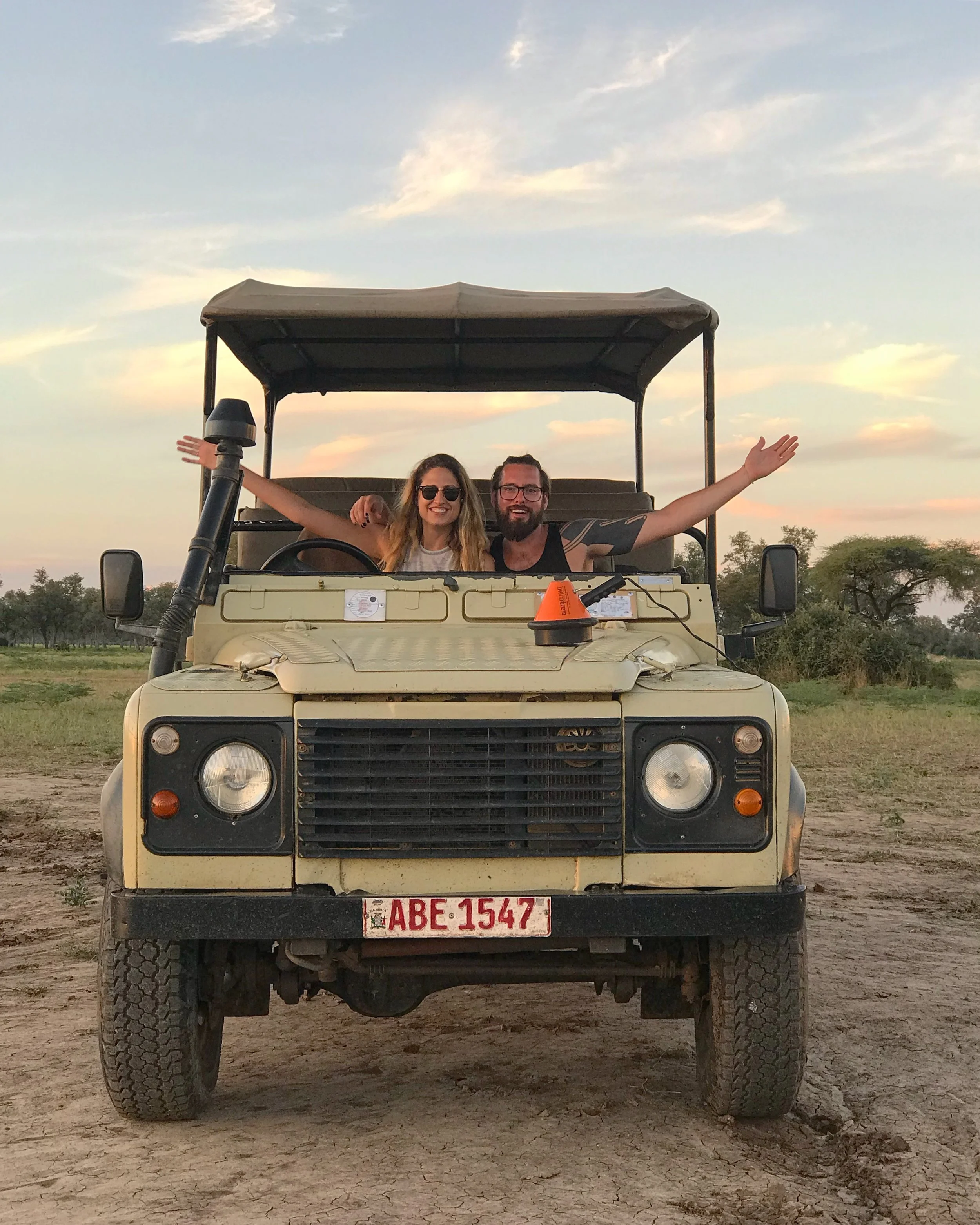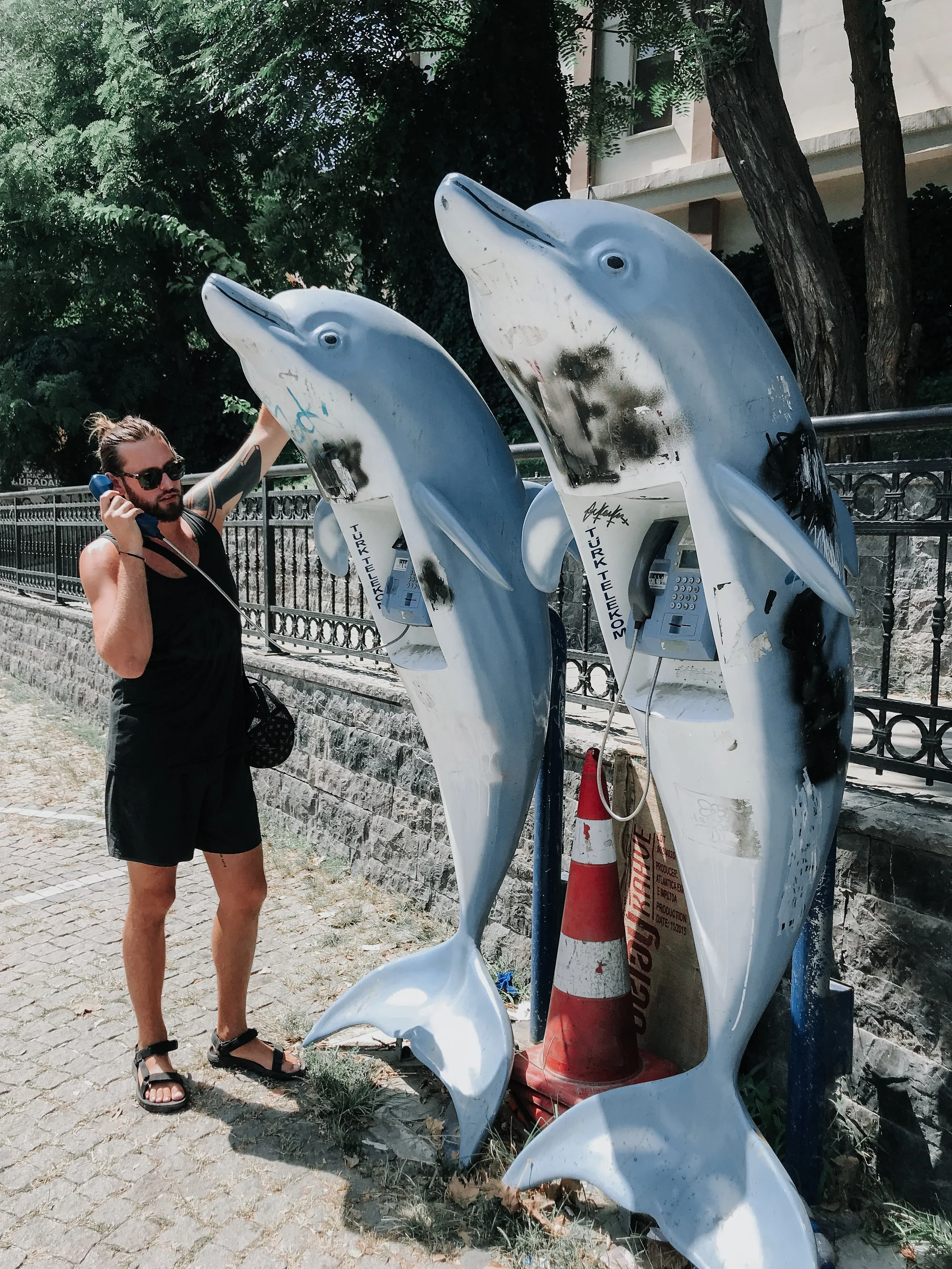11 Tips for Surviving an African Safari
Recently Danyelle and I went on a three-week overland safari with Acacia Tours and learned the ropes of how to survive an East African land adventure while camping and trucking across over 4,300 kilometers from Livingstone, Zambia to Nairobi, Kenya with a few stops in between.
Before you jump right into your first overlander (or your first trip to Africa overall), below are some essentials to know to make sure you have a solid experience before, during, and after.
Pick the right tour. There are all sizes and shapes of tours. We chose a camping overland that put you on a truck that fit up to 22 people. Fortunately, we only had eight people and everyone had an extra seat to sleep and relax on while we frequently did 8-16 hour driving days. Our tour was also focused on our age range of 18-39, so we would be traveling with a group of our peers.
Preparation is key. You are probably going to be crossing borders, driving long distances with limited stops, and it's going to be hot. Make sure you do your own research ahead of time about what countries you are going to, temperatures, and be radically self-reliant.
Know your role. You may have to participate on the tour to help keep things ship shape. That could be keeping the truck clean, helping prepare group meals, or something totally different.
Get dirty. Whether you are helping get your truck out of the mud (hello, rainy season!) or leaving campgrounds and parks cleaner than when you found it, don't be afraid to get down and dirty.
Support your family. Consider your truck mates your family and make sure they have everything they need. It can be hard traveling 10, 20, or 30 days together with the same group, so that's why considering them family is so important.
Ask questions. You may not be told everything you want to know on the tour, so take advantage of your curiosity by asking questions to your tour guide(s) whenever possible.
Watch out for water. Your first inclination in most cases where the weather is hot and humid might be to jump into the refreshing waters of a lake or river, but this is Africa (T.I.A.) and in Africa, water often times means crocodiles and hippopotamus — two species that use the waterways of Africa as their home and are dangerous to surprise.
Animal safety. I know that furry creature looks so adorable and cuddly, but most likely it will want to kick, bite, hit, or charge you if you get too close. Giraffes headbutt, zebras kick backward, monkeys bite and steal, and hippos charge. Be extra cautious because these are wild animals looking to survive and protect their flock or their territory. If you want to touch and play with the animals then I recommend a legit animal sanctuary where the animals have had human interaction in a safe way because they have been rescued as babies or after being injured and needed rehabilitation.
Road rules. "Bushy bushy" means you are going to use the toilet in the bushes on the side of the road. ATM and grocery stops aren’t frequently available, so plan accordingly when you get the chance. Keep your seat belts on always because of safety and the local police often do checkpoints to issue fines. Fines happen most often in Zambia but all East African countries do it.
Food health. Wash your hands, wash your hands, wash your hands. Before every meal, touching your face, etc. — wash your hands or use hand sanitizer. Hand washing means soap your hands and scrub before rinsing them off. If you don’t have either soap or sanitizer, use sand or dirt and rub your hands at least four times together before washing or wiping them off (it's effective, I promise!). If you want to get the full scoop on staying healthy in developing countries then read the book, “How to shit around the world” — it’s essential.
Local trickery. Be cautious of any situation where it feels like someone may be trying to take advantage of you. That could be a romantic encounter, someone trying to sell you illegal drugs (and they have a deal with police to turn you in), or the switcharoo of a taxi driver quoting you a price of $10 but once you arrive, they say that was per person. Overall, most locals are great people and many depend on the tourism industry for their income, but there’s always the 1% of evildoers you need to keep an eye out for.
We hope this helps prepare you for your African overland adventure. If you have any other questions, message us via @WeDidThat on Instagram.






